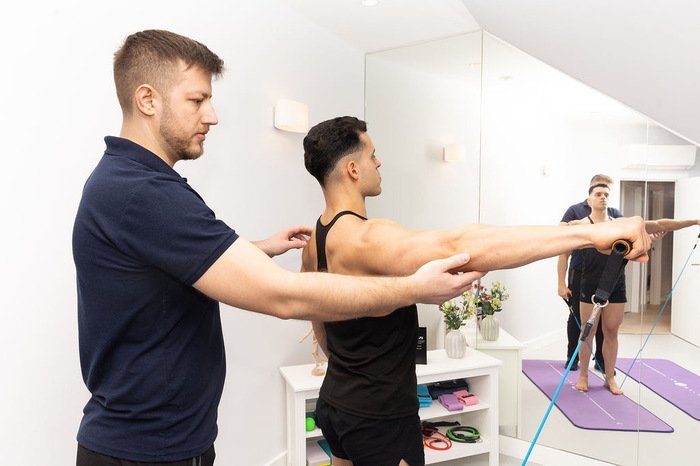How Long Does Physiotherapy Take to Work?
Physiotherapy is a form of therapy that uses physical techniques to help improve the body's movement, strength, and function. It can be used for various conditions, from sports injuries to chronic pain. The duration of physiotherapy treatment depends on your condition's severity and how your body responds to it.
But since many of us experience our physical ailments differently, we often ask the question - how long does physiotherapy take to work? In this blog post, we will explore how long it takes for this treatment to show an impact on health and wellness, and the effects you can expect from this powerful form of care.
So, How Long Does it Take to See Results?
In general, acute conditions like sprains and strains may require a shorter course of physiotherapy treatment. Whereas chronic conditions like osteoarthritis and chronic back pain may require a longer course of treatment. For example, a sprained ankle may only require a few physiotherapy sessions, while chronic back pain may require ongoing treatment for several months. Also, some people may feel the benefits after just one session, while others may need multiple sessions before noticing any improvement.
In general, most people will start to feel some improvement within 4-6 weeks of starting treatment. For more severe conditions, treatment may need to continue for a longer period of time. It is important to follow the treatment plan set out by your physiotherapist, including any exercises and stretches that are prescribed.
How Many Physiotherapy Sessions Do You Need?
The initial assessment and diagnosis by the physiotherapist is an important step in determining the duration of your physiotherapy treatment. During this assessment, the physiotherapist will take a detailed history of the condition, conduct a physical examination, and may also use diagnostic imaging or other tests to help identify the underlying cause of the problem. Based on this assessment, the physiotherapist will develop an individualised treatment plan tailored to the patient's specific needs.
Therefore, the number of sessions you need depends on your condition's type, severity, and complexity. Generally, a minimum of 6-8 sessions is recommended to begin with; however, some people may need more depending on their individual condition.
The duration between each session should also be considered, as some people respond better with shorter gaps between sessions.
What Results Can You Expect from Physiotherapy?
Physiotherapy aims to improve movement, reduce pain, and restore function safely and effectively. It can help to strengthen and stabilise joints, improve joint flexibility, increase mobility and range of motion, and reduce pain, physical fatigue and general stress.
In addition to following your physiotherapist's advice, there are other things that you can do to help speed up the process. These include:
Staying active – Regular exercise can help strengthen your muscles and promote healing.
Eating a balanced diet – A healthy diet can provide your body with all the essential nutrients it needs to repair itself.
Practising good posture – Poor posture can put extra strain on your muscles, so it is important to be aware of your posture and correct any postural imbalances.
Applying cold and heat – Cold therapy can reduce inflammation, while heat therapy can help relax tight muscles. Consult your physiotherapist for advice on when to use them.
Avoiding activities that could worsen the condition – Talk to your physiotherapist about what activities you should do to avoid your condition from getting worse.
Overall, physiotherapy can be a great way to reduce pain and improve movement, but it is important to follow the treatment plan set out by your physiotherapist and make any necessary lifestyle changes. If you’re asking the question - how long does physiotherapy take to work? - with dedication and hard work, you should start seeing its benefits within 4 to 6 weeks.
If your condition is more severe, it may take longer for you to experience the full effects of physiotherapy. Be patient and keep up with any recommended exercises or stretches to get the most out of your treatment program. However, if you feel that your condition is not improving after several weeks, you should seek advice from your physiotherapist.
Thank you for reading our blog ‘How Long Does Physiotherapy Take to Work?’. Book an appointment at our London clinic today. Also, you can call us on 07384 444 984 or fill out our contact form, and one of our therapists will get back to you shortly!
